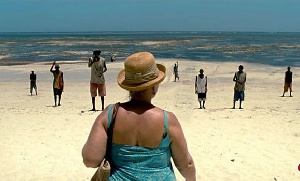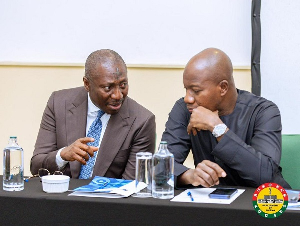Tanzania's semi-autonomous archipelago of Zanzibar has not had any confirmed cases of the coronavirus.
Yet its economy has been hard hit by tourists' fears about the pandemic, with reports of hotel cancellations after the government suspended direct flights from Italy.
At least 80% of Zanzibar’s annual foreign income comes from tourism but the government is looking at boosting investment in other sectors, such as fishing and agriculture, to mitigate the economic blow.
Zanzibar’s scenery and rich historical culture bring close to 500,000 tourists to the the island every year.
But there have been some changes recently - which are quite noticeable in certain parts of the capital, Stone Town.
The sidewalks that are usually bustling with tourists have become much quieter in the last few days. Many here fear this could be part of a slowing down in tourism that this island expects.
Several hotels in Zanzibar have already received cancellations, especially from group bookings. Abdulaziz Yusuf, manager at the Tembo Hotel, says:
Quote Message: It’s going to affect us a lot because we really rely on tourism. The Italian market is a big market but in general tourism is the backbone of Zanzibar, so we are going to lose a lot." It’s going to affect us a lot because we really rely on tourism. The Italian market is a big market but in general tourism is the backbone of Zanzibar, so we are going to lose a lot."
Financing for at least 60% of the island’s budget comes from the tourism sector.
"We have to improve our agriculture system now using beautiful rains that we have, we have to improve our fishing industry, so that we don’t depend on tourism anymore because of this risk which may happen anytime again," Zanzibar’s health minister Hamad Rashid says.
The ministry has put in place measures to help prevent a coronavirus outbreak. Mr Rashid adds:
"We have 192 primary health centres [with staff] trained to look for symptoms. We do screen and talk to business people who travel to China. It’s a small area, so it’s very easy to control." We have 192 primary health centres [with staff] trained to look for symptoms. We do screen and talk to business people who travel to China. It’s a small area, so it’s very easy to control."
Africa News of Thursday, 12 March 2020
Source: bbc.com













